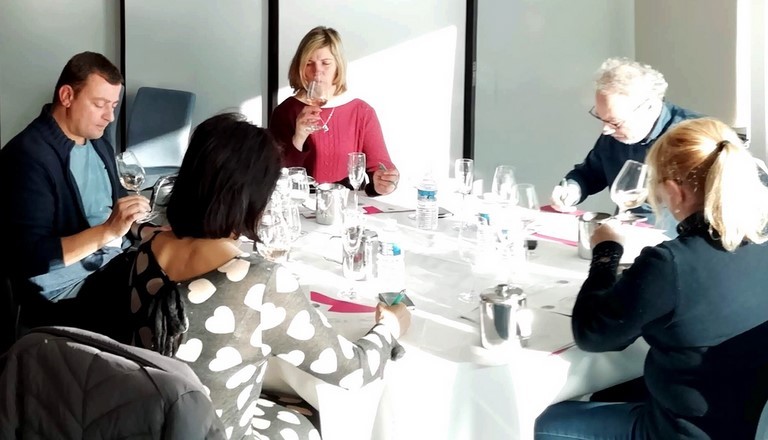Rosé Wine Experts
Scientific and Technical Committee
We have increased the technical constraints both collegial and geographical dispersion. We have also implemented a tasting protocol unique in the world to judge wines and spirits for themselves and not comparatively but also to optimize the potential of tastings including limiting the number of samples to be tasted in a morning, never in the afternoon.

Tasting PanelsLes Collèges
College 2 - production and affiliates, secretary: person working upstream of the wine industry: winemaker, laboratory manager, viticultural technician, glassmaker, corker, printer, etc ...
College 3 - marketing, dissemination, wine tourism: person working downstream of the wine industry: traders, sommelier, wine merchant, exporter, chef, caterer, visit manager, etc ...
College 4 - education, training, communication, public relations, media: people who train from CAPA to PhD through vocational training in the professions of the vineyard and wine; and whoever professionally collects information, writes articles or publishes reports (written, audio, photo or video) in the world of vineyards and wine.
Tasting JuriesLes Jurys
Each jury includes 5 female jurors, 3 foreign jurors and 2 French juries from each of the colleges.
Each jury is composed of a juror from each of the first 4 international professional colleges corresponding to the promotion of the vine and wine trades. We will find a juror from the oenophile amateur discovery college.
The choice to include informed amateur enamels is a deliberate desire because this college reflects the tastes and expectations of consumers.
No influences any other tasters at the tasting table because ... they are all international professional experts!
The wine sample evaluated will thus benefit from a high-level exchange and a multi-international expertise as well as comments from it. We find ourselves with a product that responds as close to the market.
That's what professional taster can offer and it's called:
EXCELLENCE





